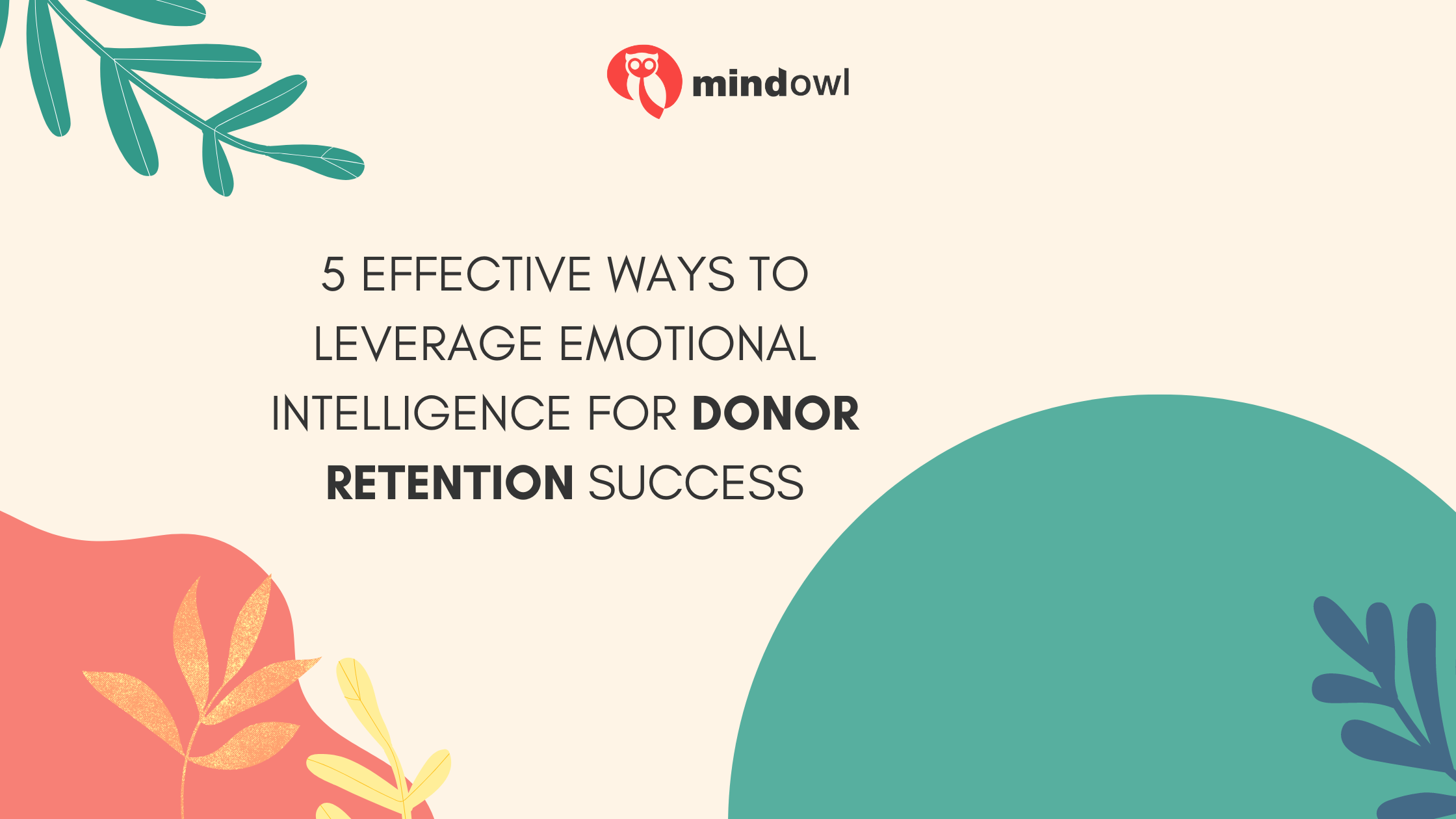
Source: Pxhere
Let’s face it: effective nonprofit fundraising thrives on strong, lasting relationships with donors. While traditional fundraising strategies like direct mail and fundraising events are effective, truly retaining donors over the long term requires a deeper connection.
That is where emotional intelligence, or EQ for short, becomes crucial.
EQ is the ability to recognize, understand, and manage emotions – both your own and those of others. With nonprofit fundraising, having high EQ allows you to tap into the emotional drivers behind why people give and build authentic rapport.
This guide will explore five key ways to leverage emotional intelligence for long-term donor retention.
It All Starts With Understanding Donor Motivations
Donors are often motivated by a complex blend of personal experiences, values, and emotions. While the cause itself may resonate with them on a surface level, the emotional connection to the mission or the people it serves is the very thing that truly inspires their support.
Having a knack for emotional intelligence lets fundraisers dig deeper and move past the obvious reasons people donate to uncover what truly tugs at their heartstrings.
Getting to the heart of what motivates someone to give or seeing how their deepest beliefs mesh with our cause can make all the difference.
When fundraisers truly get where people are coming from and connect with their feelings, they can shape their messages and reach out in ways that hit home harder. This understanding can help build strong and long-lasting relationships with donors.
Nothing Beats Personalized Communication
With so many nonprofits vying for attention and donor funding, making your messages personal is the key to standing out and ensuring donors know how much you appreciate them. With a good grasp of emotional intelligence, fundraisers can get into the heads of their donors.
This means sprucing up and customizing how we chat with each supporter, ensuring it hits just right based on what those folks care about and enjoy.
So, for example, you might segment your donor list into different groups based on their past donations, who they are, or their preferred messaging mode.
By crafting personalized messages, you can truly connect with your donors. Imagine a heartfelt thank-you note for a recent gift, or an email that describes the impact of their support. These personalized touches show donors they’re valued and not just a number.
This, in turn, fosters loyalty, strengthens the bond with your cause, and can even help nonprofits reconnect with lapsed donors.
Use Authentic Storytelling
For years, the power of a good story has been at the heart of successful fundraising for nonprofits. Do you want to know the secret sauce?
The secret sauce is keeping it real. Emotional intelligence empowers us to use genuine and heartfelt narratives that promote continued fundraising and donor retention.
Rather than relying on generic or sensationalized stories, emotional intelligence empowers us to capture the essence of the organization’s mission and impact.
This may involve sharing personal anecdotes from those directly impacted by the organization’s work or highlighting the real-world challenges and triumphs faced by the communities and people we serve.
When you tell a true story, it doesn’t just grab donors by the ears – it builds a bridge of trust and lets them see their reflections in the narrative. This kind of connection is golden.
Active Listening and Feedback Never Fails
With donors, effective communication is as much about speaking as it is about listening keenly. Emotional intelligence enables us to practice active listening to understand donors’ perspectives and the underlying emotions and concerns beneath their words.
EQ-driven active listening may involve soliciting feedback through surveys or donor interviews and genuinely listening to donors’ input and suggestions.
When we take the time to listen and soak up what donors have to say, it’s clear they’re not just there for the donations; they care about making lasting connections by understanding what people want and expect from them.
By working hand in hand, donors and organizations create a team-like atmosphere that strengthens their bond and boosts donor satisfaction and loyalty.
Cultivating Empathy and Gratitude
Since it’s at the heart of being emotionally intelligent, empathy, aka the ability to tune into others’ experiences and feelings, lets fundraisers understand their donors’ perspectives.
When we step into our donors’ shoes, we foster a deeper understanding of the impact these donors want to make and see, which allows us to shape our strategies to meet those expectations more effectively.
We should also take a moment to truly appreciate the heartfelt generosity behind each donation, making sure every supporter knows just how much their help means to us.
Emotional intelligence lets fundraisers show their thanks in a genuine and warm way that builds a real bond and friendly vibes between the people giving money and the organization.
When fundraisers show genuine empathy and thankfulness when engaging with their supporters, building a stronger emotional connection becomes easier. This warmth and sincerity can encourage ongoing support and create loyalty among donors.
Conclusion
Focusing on emotional intelligence can set the stage for a brighter and more solid future. It can help us go beyond just raising money and instead create stronger bonds within communities and ensure that nonprofits can make a big difference where it’s needed most.
MindOwl Founder – My own struggles in life have led me to this path of understanding the human condition. I graduated with a bachelor’s degree in philosophy before completing a master’s degree in psychology at Regent’s University London. I then completed a postgraduate diploma in philosophical counselling before being trained in ACT (Acceptance and commitment therapy).
I’ve spent the last eight years studying the encounter of meditative practices with modern psychology.


